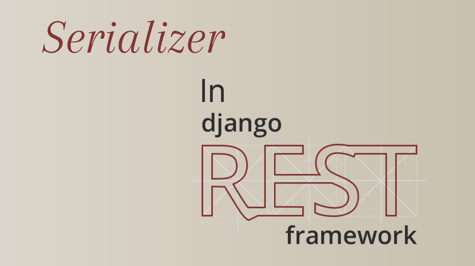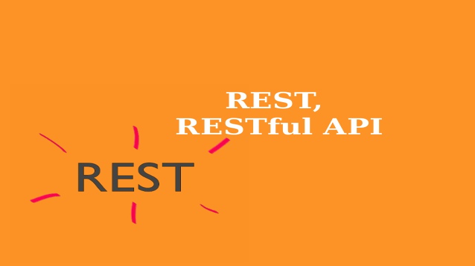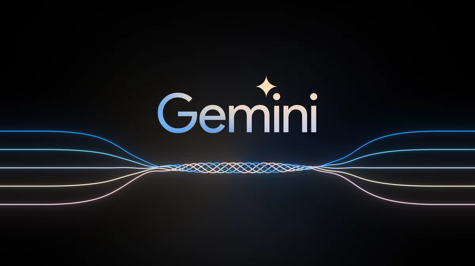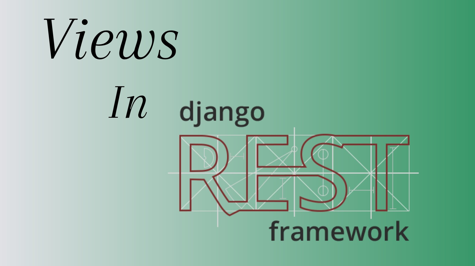In the Django REST framework, a serializer is a class that provides a way to convert complex data types, such as Django model instances or querysets, into JSON, XML, or other formats. The serializer also provides deserialization, which allows parsed data to be converted back into complex types, after first validating the incoming data.
Here's an example of a simple serializer class for a model called "Person":
from rest_framework import serializers
from .models import Person
class PersonSerializer(serializers.ModelSerializer):
class Meta:
model = Person
fields = ('id', 'name', 'age', 'email')
This serializer would handle converting Person model instances to and from JSON and would include the "id", "name", "age", and "email" fields in the serialized representation.
You can then use this serializer in your views:
from rest_framework import viewsets
from .models import Person
from .serializers import PersonSerializer
class PersonViewSet(viewsets.ModelViewSet):
queryset = Person.objects.all()
serializer_class = PersonSerializer
This PersonViewSet is a generic viewset that provides create, retrieve, update and delete operations of Person model using the PersonSerializer
The ModelSerializer class is a subclass of the Serializer class and it provides a convenient way to automatically create serializers for Django models. It takes care of the following things for you:
- Creating fields for all of the model's fields
- Automatically adding validators for unique fields
- Optionally handling foreign key and many-to-many relationships using nested serializers
In the example above, the PersonSerializer class is a subclass of serializers.ModelSerializer, and the Meta class is used to specify the model and fields that the serializer should use. The fields attribute in the Meta class is used to specify which fields of the model should be included in the serialized representation.
A viewset class ModelViewSet is a type of class-based view that automatically provides CRUD operations using a model and serializer class. The queryset attribute is used to specify the queryset that should be used to retrieve the objects that the viewset should operate on, and the serializer_class attribute is used to specify the serializer class that should be used to handle the serialization and deserialization of the objects.
You can also use Serializer class alone instead of ModelSerializer class. You have to define fields for the serializer yourself and also you need to handle the validation and saving of data in create and update method of views.
It's also possible to customize the serialization process beyond what the ModelSerializer and Serializer classes provide out-of-the-box by adding extra fields and methods. For example, you might want to add computed fields, or custom validation logic. Additionally, you can also add other fields such as SerializerMethodField to include dynamically computed values, or ReadOnlyField fields that should only be used for serialization but not for deserialization.
The Django Rest Framework serializers are quite powerful and flexible and can handle a wide variety of use cases. If you have any specific questions or need more information about a certain aspect of the serializer, let me know in the comment.





